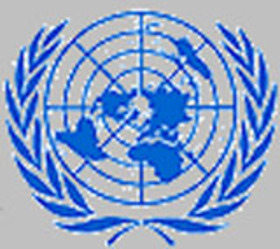

United Nations, UN
The United Nations was founded in 1948 and now assembles 192 countries. France and the UK are permanent members of the UN Security Council. The EU is not a member of the Security Council in its own right.
Although the UN Charter requires a UN mandate for the use of military forces, the EU does not provide for such a mandate in its Common Security and Defence Policy.
The Lisbon Treaty provides for that EU members of the Security Council shall co-ordinate their positions, eventually taking UN decisions by qualified majority voting in the Council, after unanimous agreement on the aims at an EU Summit.
Article 3.5 TEU obliges the Union to "respect for the principles of the United Nations Charter".
Article 21.1 TEU requires the Union to promote multilateral solutions to common problems, "particular in the framework of the United Nations".
Article 34.2 TEU obliges member states in the UN Security Council to defend the common EU positions.
Article 42.7 TEU links the common security and defence policy to "the principles of the United Nations Charter" - but the EU decides itself over its military action and can act without a UN mandate.
At. 208.2 TFEU requires both the Union and the member states to comply with commitments in the UN and other international organisations.
Article 220 TFEU obliges the Union to "establish all appropriate forms of cooperation with the United Nations and its specialised agencies".
Article 214.7 TFEU is for coordination of humanitarian aid operations with the UN.
Protocol 12 about structured cooperation for some member states and United Nation missions.
See also Common Foreign and Security Policy
Links
UN website http://www.un.org/